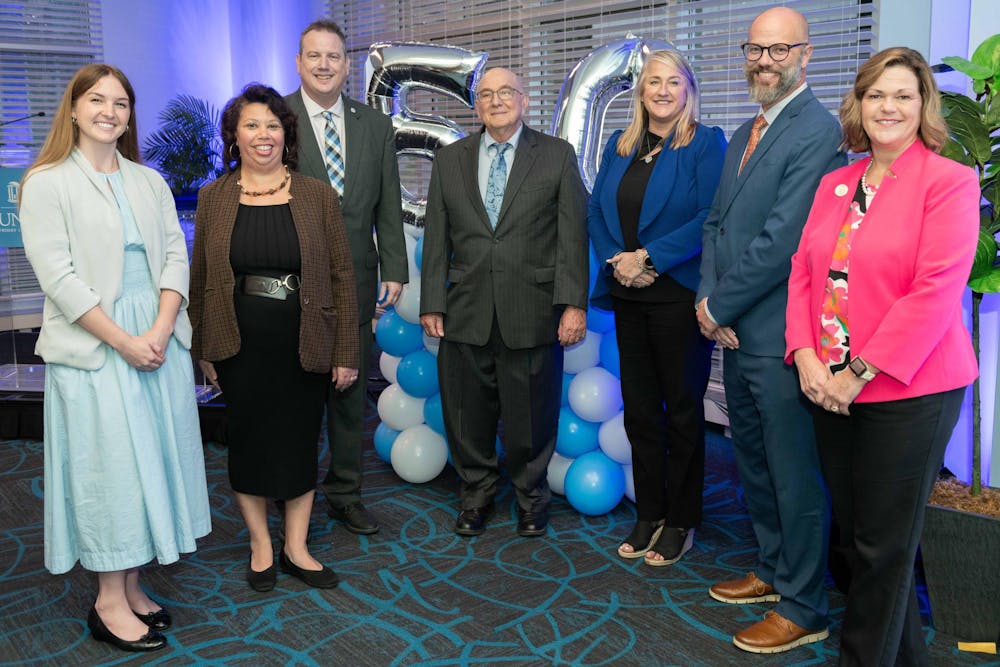Audio edited by Lauren Zola.
At the end of 2024, UNC’s Correctional Education Program celebrated their 50th anniversary. The program is based in the William and Ida Friday Center and has provided academic courses and other educational resources to thousands of incarcerated individuals in state prisons across North Carolina.
Lisa Kukla, director of the program, said about 500 people participate in the program annually, taking general education courses in subjects including history, English, communications and math. Half of the classes are self-paced courses sent through the mail, while the other half are in-person.
Kukla said the purpose of the courses is to meet the prisoners where they are and equip them with the tools they need to be successful in society.
“Research has shown that anyone who takes courses, from GED to college, the higher the level, the less likely they are to return to prison,” Kukla said.
Brooke Wheeler, superintendent for education services with the N.C. Department of Adult Correction, also said that these programs aim to prepare people for reentry and the work force. She partners with community colleges, public and private universities to provide education in all state prisons in North Carolina.
According to Wheeler, programs like UNC’s can “make or break” somebody’s life because individuals can earn various licenses or degrees. Wheeler said this gives prison education the power to not only change the lives of those incarcerated, but also their families and future generations.
“They're important, because these students are going to go back out into society,” Kukla said. “We want these students to be the best version of themselves. We want to give them hope and opportunity.”
Ariannah Kubli, a graduate student and teaching fellow in the Department of English and Comparative Literature, teaches writing and literature classes at several facilities. Kubli said she began teaching with the program because of her belief that anyone who wants a liberal arts education deserves to have access to one.



